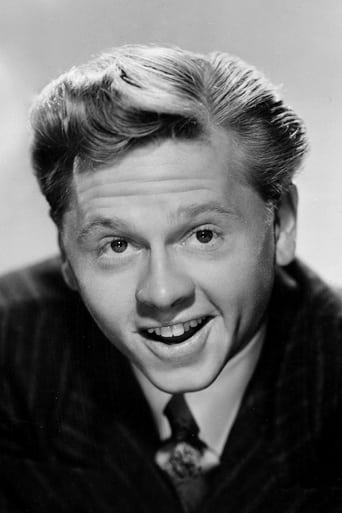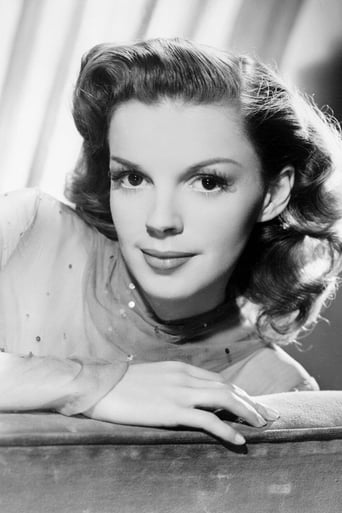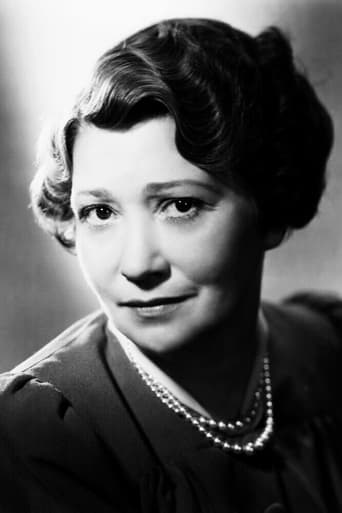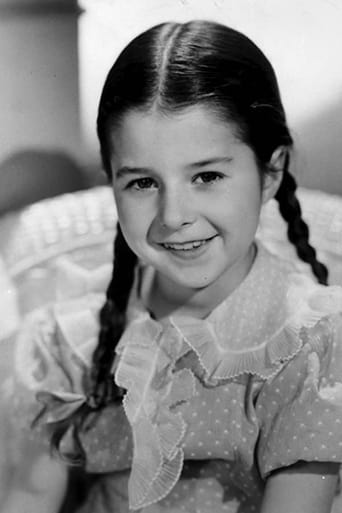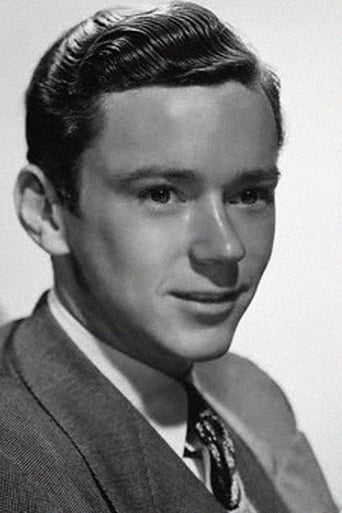GamerTab
That was an excellent one.
Evengyny
Thanks for the memories!
NekoHomey
Purely Joyful Movie!
Lechuguilla
Unfairly maligned by viewers with little or no knowledge of history, "Babes On Broadway" is a reasonably good film that, more than anything else, speaks to us from across the years. It tells us a lot about America in 1941.Several talented young people, just starting out, try to make it big on Broadway. That's the story premise. The script presents a thin, superficial plot. Dialogue lacks significant subtext. But, of course, the plot's real purpose is to create continuity in a film meant to showcase the musical talents of its two big stars: Mickey Rooney and Judy Garland. They, along with a large cast, sing and dance in various musical productions, some good, some not so good.Which leads to my main criticism of this film: the editing. With a thin plot and a runtime of two hours, large chunks could have been chopped out. I have no idea why they included a Beethoven piano performance by a child prodigy; it has no connection to anything. Similarly, the "Hoe Down" musical segment is arguably weak. And, though I commend the producers for acknowledging Great Britain's War efforts, devoted plot elements are thematically irrelevant and overly long.On the other hand, the best sequence in the film is its grand musical finale, a tribute to the American South. This segment provides a nice contrast to New York's Broadway allure. Dialogue here refers to an "old-fashioned" minstrel show. Most of the songs are from decades earlier. Musical lyrics include the wording "And boy that Southern cooking is okay". Clearly, the intent is to salute the South. So putting performers in black face is entirely appropriate within the well-defined historical context. Performances are fine. Judy Garland shines. Fay Bainter, ideally cast as a theatrical agent, also gives a good performance. At various points Ray McDonald excels as a tap dancer; he's almost in the same league as Fred Astaire. And impersonating "Brazil bombshell" Carmen Miranda, Mickey Rooney is funny in drag, wearing platform shoes, tawdry women's jewelry, and a flamboyant hat as he sings Miranda's signature song "Mamae Eu Quero". Throughout the film Rooney exudes confidence, energy, and a highly animated persona.The film's sets and costumes, dialogue about tough times, as well as the selected music and the big accent on tap dancing, combine to give viewers a pretty good feel for American pop culture in the early 1940s. It's by no means a perfect film. But it's worth watching, mostly for nostalgia, as representative of an era that is gone forever.
bkoganbing
Despite the fact the Busby Berkeley finale was a minstrel show, I like Babes on Broadway just fine. If you want to see Mickey Rooney and Judy Garland as a team at their peak, this isn't the film. But I like it fine anywayMickey is a member of a trio which also consists of Ray McDonald and Richard Quine singing for their supper at a one armed spaghetti joint owned by Luis Alberni. One of the three customers in the joint one night is Broadway girl Friday, Fay Bainter who loves the act and Mickey especially. She spends the rest of the film trying to get ulcer ridden producer James Gleason to hear him and the rest of the talent Rooney collects for that inevitable show he wants to put on.Of course one of those talents is Judy Garland, another eager young hopeful and the musical highlight of the film is their singing the famous Vernon Duke song, How About You. It's not one of Berkeley's big production numbers, it's done with Mickey and Judy at a piano in her place, but their infectious enthusiasm will grab you immediately. How About You was later done in the fifties with a really fine arrangement by Rosemary Clooney and Bing Crosby in one of their joint albums. The other highlight for me is the surreal number done when Judy and Mickey arrive at a long closed theater for their show and are transformed by the spirits of the performers of long ago who headlined in the place. What has to be remembered is that several of these people were actually still alive when Mickey and Judy are imitating them, people like George M. Cohan, Harry Lauder, Blanche Ring. Faye Templeton, Sarah Bernhardt, and Richard Mansfield were long dead or retired by then. Still people in the audience remembered them and Mickey and Judy's reverential treatment to these stage stars of long ago must have struck a chord in movie audiences we can't appreciate today.The minstrel show finale of course isn't good, yet even that is salvaged somewhat by Judy's singing of Franklin D. Roosevelt Jones. She also recorded it for Decca and the number still plays well today. When Judy does it even in blackface, somehow instead of degrading, it comes out as a tribute, like Fred Astaire in blackface imitating Bill Robinson in Bojangles of Harlem.My favorite of their joint projects has always been Girl Crazy, still Mickey and Judy are as alive and fresh in Babes on Broadway as ever and it's a great example of matchless chemistry and teamwork.
prosper54-1
To get an idea of just how talented a performer Mickey Rooney is, watch his banjo playing in the movie's final number, The Robert E. Lee. At first you may think he's just going through the motions, but he's actually playing the banjo for the last 3 minutes of the movie. His dance numbers are also superb.He was at the height of his popularity when this 1941 movie came out, the #1 Box Office Male Star for 6 years in a row. To say this movie is too sugary, is a cheap shot and you must put it into perspective of when it was made. (The black face number at the end was far from sugary). Rooney dances and imitates Cagney in Yankee Doodle; He does a perfect impersonation of Carmen Miranda in another number and the finale is worth the price of admission. Corny, yes. Talented? precisely.
preppy-3
I've never seen a Judy Garland/Micky Rooney musical. They did a number of them in the 30s and 40s. They seem to have disappeared. Watching this one I can see why.Within the first 10 minutes I was ready to turn it off. The plot is OLD (Garland and Rooney putting on a show), the dialogue is terrible and the jokes are SO bad. Also Rooney overacts horribly. But I stayed with it. When Garland showed up--about 15 minutes in--the movie got bearable. She was so young, beautiful and full of life. She made me stay with it. When the songs and dances came on they were great--and there's a hoedown number that stops the show. And Fay Bainter is very good as a theatrical agent. There's also a very bizarre sequence with Garland and Rooney in an empty theatre playing different characters--it's WAY too long and gets kind of dull. And this has an interesting subplot about WWII and British children. Still I can't recommend this.Rooney is just horrible--he overacts in the dramatics and he REALLY overacts in the musical numbers--I was embarrassed just to watch him. That drags down the movie and the big finale was a minstral show with the cast in blackface! I realize in 1941 that was considered OK but it's terribly racist today (for the record I'm a white guy). I tried to look past that but I couldn't. And it's too long (almost 2 hours).I'm giving it a 6--but I really can't say I liked it. The 6 is for Garland and some of the numbers.

